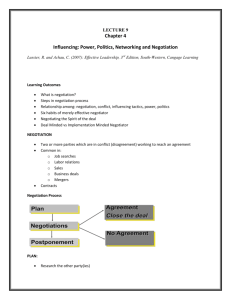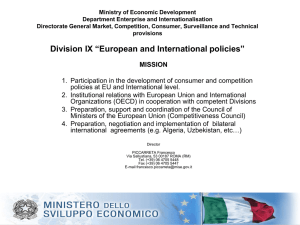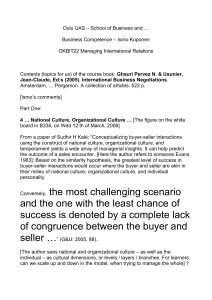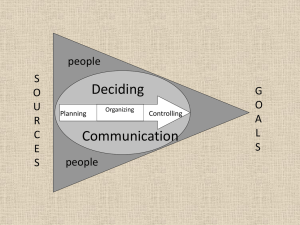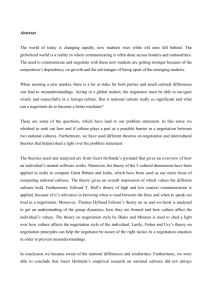Running head: JOURNAL 2 DEBORAH DAVIS JOURNAL 2
advertisement
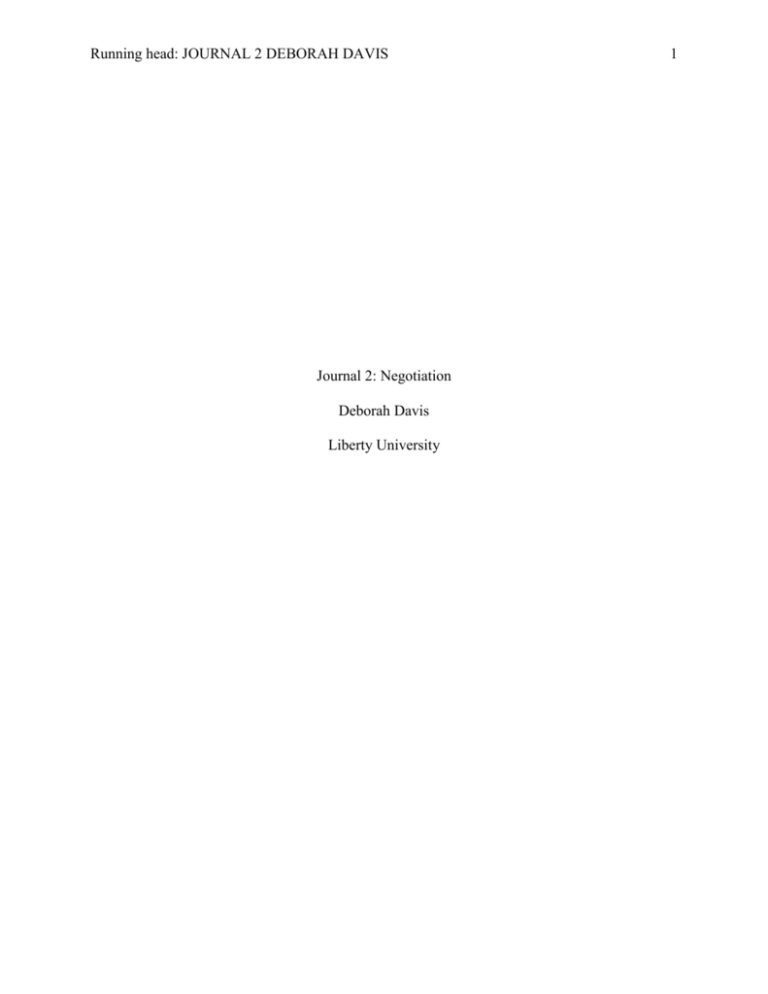
Running head: JOURNAL 2 DEBORAH DAVIS Journal 2: Negotiation Deborah Davis Liberty University 1 JOURNAL 2 DEBORAH DAVIS 2 Journal 2: Negotiation Smolinski and Kesting (2013), present their article about competitive negotiation and mediation as a basis for developing negotiation pedagogy. Summary Negotiation is presented as a team sport for a multitude of Universities. The annual competitions generally “comprise several rounds in which different cases or role-plays are subsequently negotiated or mediated” (Smolinski & Kesting, 2013, p. 357). A listing of several competitions is provided. Three main areas are considered for evaluation and judging: preparation for the negotiation given advanced materials; effective use of tools and teamwork to develop the process of the negation; and did the outcome reflect appropriate and ethical use of contract skills. The skills developed through training and preparing for the competitions vary widely. Emotions run high during these competitions; reputations are built and destroyed quickly; the tactics used are frequently directly attributed to the gain or loss of the argument. The winning or losing the issue may or may not have play in the winning or losing of the competition. Analysis This journal article presents a research-based approach to a qualitative analysis of an issue with some structured interviews supplementing the research. Presenting an intent to align the development of the competition with the institutional pedagogy of negation, the article falls short. The review of competitions is specific and elaborate. However, the application or development of a pedagogical role model is deficient. Smolinski and Kesting (2013) present that “skill development, networking, and promotion of negotiation as a field of study” (p. 360) provide adequate pedagogical foundation. Skill development is always an asset for any JOURNAL 2 DEBORAH DAVIS 3 competition, the development and practice of negotiation is not a basis for pedagogy. Networking among competitors and instructors is a positive, indeed, but falls short of a pedagogical basis. While negotiation is “an acknowledged and well-established research and study discipline” (ibid, 2013, p. 362), that gives no foundation for the development of core curriculum or coursework. Application Defining pedagogy as a “method of teaching based on a theory” (Pedagogy, 2014), makes it hard to construe the article as an element of pedagogical intent. However, the obsolete meaning of “a system of introductory training” (ibid) gives more leeway to the exactitude of pedagogical expression. While the article fails in its stated mission, it does provide a useful resource. The learning of diverse negotiation skills as a way to capitalize on competition can be developed into a working tool for students and educators. The more tools in the toolbox, the better chance one has of selecting the right one for the particular job. Practicing negotiation skills through focused application as a method of training could provide wonderful insights for those anticipating work in the field, or in any field. JOURNAL 2 DEBORAH DAVIS 4 References Pedagogy. (2014). In Oxford English Dictionary Online. Available from http://web.ebscohost.com/ehost. Smolinski, R., & Kesting, P. (2013). World championship in hegotiation? The role of competitions in negotiation pedagogy. Negotiation Journal, 29(3), 355-369. doi:10.1111/nejo.12029



